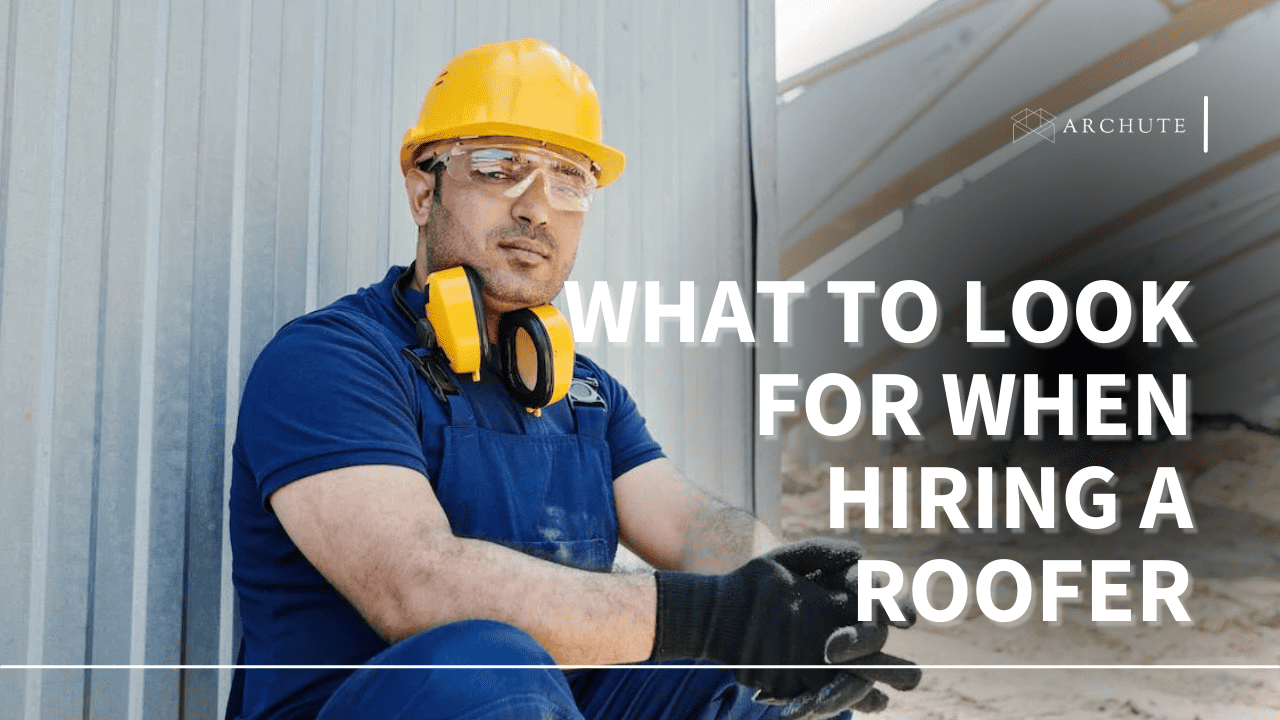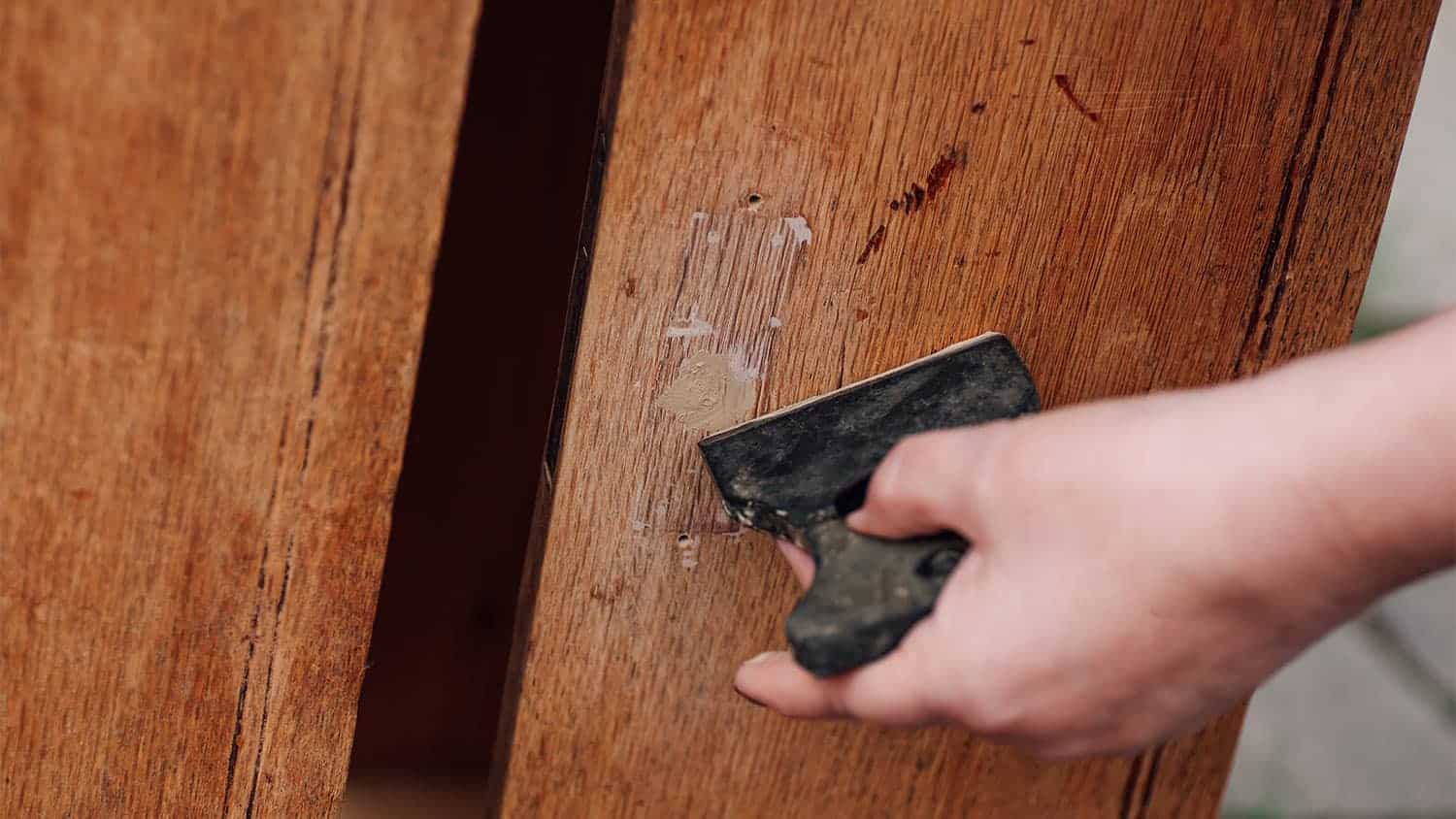Selecting the right roofer is more than just finding someone to do some quick repairs or replace your roofing system. Rather, it's more about ensuring the comfort and safety of your home for years to come.
The roofer you choose is pivotal in determining your home's aesthetic appeal, longevity, and market value (in case you ever decide to sell it).
Making the right choice, therefore, protects your investment while also maintaining your peace of mind.
This piece shares some insights into what to look for when hiring a roofer and ten red flags that a roofer isn't right for you.
Scenarios Where You May Need To Hire a Roofer
A professional roofer might be needed in a few common scenarios. For instance, if your roof is leaking, it's wise to call in an expert. Another situation might involve replacing worn-out or damaged shingles.

Image Source: mydecorative.com
Additionally, if you're constructing a new home or extending your current one, you'll likely need a roofer's expertise. The roofer you choose is integral to your home's value, longevity, and safety.
This person can enhance the comfort of your living space and its overall appeal.
What Are the Types of Roofing Contractors?
Roofing contractors are not all the same. Knowing the differences between roofing contractors will help you know what to expect when signing contracts or getting quotes.

Image Source: allseasonsroof.com
1. Roof Repair Contractors
Roof repair professionals are responsible for repairing any damage that threatens its structural integrity, such as holes or broken shingles, and ensuring your roof's safety. Roof repair contractors may also offer additional services like leak repair and gutter cleaning.
2. Roof Replacement Contractors
Roof replacement contractors are experts in replacing the old roofing materials that make up your roof. They can help you choose a tile or shingle style and recommend roofing materials similar to your installed ones.
3. Residential Roofing Contractors
Residential roofers only work on homes, installing new roofs and repairing old ones. Even though residential roofing installation is less technical or complicated than commercial roofing installation, you must hire a skilled and reputable contractor to ensure your roof remains durable and waterproof for many years.
What to Look for When Hiring a Roofer
1. Do They Have Plenty of Good Local Reviews?
These days, it's the norm to start your search online when looking for a service provider, and roofers are no exception. Online reviews are crucial when selecting a roofer, especially for reviews specific to your locality—say, New Orleans.

Image Source: classicmetalroofingsystems.com
Finding consistent positive feedback for roof replacement services a particular contractor provides indicates their dependable service within the community. The same goes for other services like repairs and roof installation.
Taking into account local reviews can help ensure that the professional you hire understands the unique weather challenges and building regulations in your area. Researching local opinions might be time-consuming, but ensuring quality outcomes is worth it.
2. Experience and Expertise
When choosing a roofer, one of the first things you need to consider is their experience and expertise. This is because roofing requires specific skills that are developed over time. A seasoned roofer has encountered various roofing situations and knows how to deal with them properly.
Whether you need one for new construction or upgrading your old roof, expertise, and experience should be at the top of your list when picking a roofing contractor.
3. Portfolio and Past Projects
Request a contractor's portfolio or samples of their previous work. You can evaluate the quality of the contractor's work by examining their portfolio. Look for projects that exhibit overall craftsmanship, neatness, and attention to detail. Examine the quality of the installation, the roofing materials, and the overall aesthetics. This can help you determine the contractor's skills and whether their work meets your standards for quality.
Moreover, a portfolio can showcase the contractor's roofing services. For example, they may experience various roofing materials, including tile, metal, and asphalt shingles. You can tell if a company has experience with the type of roofing you need by looking at their previous work.
4. Local References
The next thing to look at is whether the roofer can provide local references. These references allow you to gauge the contractor's previous work quality. You can contact these people and ask about their experiences working with that roofer.
5. Licensing and Insurance

Image Source: roofgiant.com
It's also crucial to check if the potential roofer has proper licensing and insurance. Here, proper means adequate coverage for workers' compensation and liability insurance in case of accidents during work on your property.
6. Manufacturer Designations
Manufacturer designations are often awarded to roofers who have met certain minimum requirements set by the manufacturer within their field—such awards act as a badge of honor, showcasing their commitment to maintaining high-quality craft.
7. Better Business Bureau (BBB) Rating
A good roofer will have a positive rating with the Better Business Bureau (BBB). This rating can provide additional insights into the roofer's reliability and professionalism. It's a smart way to identify if any complaints have been lodged against them.
8. Written Estimates
Lastly, always look for a roofer who provides written estimates. This document should include details about costs, what's included in the service, and an expected timeline for completion. This commitment in writing ensures no unpleasant financial surprises once the project is underway.
How to Hire a Roofer
There are two categories of roofing contractors to consider when you are ready to hire one: independent contractors and roofing companies. Both have advantages and disadvantages. So, always compare quotes to find the best deal and verify the roofer's credentials, references, and reviews.

Image Source: howtostartanllc.com
Independent roofing contractors can be handy for urgent repairs because they work independently or with subcontractors. However, it might take longer to finish large projects, such as replacing old roofs. However, they may specialize in a specific style. Besides, hiring an individual can be a risk. Still, it means you will see and work with the same individual throughout the project.
A roofing company is more likely to work with materials, complete large jobs more quickly, offer free consultations or discounts, and have their work covered by manufacturer warranties. However, the point of contact at every project stage may not be the same.
Common Red Flags to Watch Out For When Hiring a Roofer
Not all roofers will be suitable for your project or specific needs. That's a fact for various reasons. Here are several potential warning signs that may suggest a roofer isn't the right fit for your project:

Image Source: angi.com
- Lack of communication: If the roofer is slow to respond or doesn't answer your queries clearly, it might indicate poor service is coming your way.
- Vague estimates: A trustworthy roofer provides detailed written estimates. Refusal to provide such documentation could be a red flag.
- No insurance or license: Skipping these critical elements can lead to severe legal issues and financial loss in the event of an accident during the project.
- Pushy sales tactics: Any roofer who tries to pressure you into making rapid decisions without giving you time to consider different options might not have your best interests at heart.
- Negative reviews: Consistently bad reviews are a sign of poor craft and should be considered while evaluating potential roofers.
- Cash deals or full payment up-front: This is an obvious warning sign if a contractor pushes for cash deals or demands the total project cost upfront. It may mean they're financially unstable or untrustworthy.
- No verified references or portfolio: A reliable roofer needs to be able to showcase their work in a portfolio of finished projects or provide references from previous clients.
- Extremely low offers: While looking for competitive pricing is understandable, excessively low bids might be a red flag. Such bids could indicate shoddy craft, the use of subpar materials, or potential hidden costs. To evaluate the reasonableness of the pricing, compare several offers and consider the average market rate.
- Lack of warranties or guarantees: A reliable roofer should provide warranties on materials and craft. If a roofer is unwilling to provide any warranties or guarantees, it raises concerns about the quality of their work.
- Limited or no knowledge about building codes: Roofers should know local building codes and regulations. Legal and safety issues may arise if a roofer lacks understanding or doesn't follow the necessary codes.
Final Thoughts
When hiring a roofer, it's important to consider various factors to ensure your home's safety, comfort, and durability. Look for local reviews and references to determine the roofer's reputation. Experience and expertise are essential; therefore, review the contractor's portfolio and previous projects to evaluate their skills and work quality. Verify the roofer's licensing and insurance coverage, among other things.

Image Source: westmichiganroofing.com
When looking for a contractor for roofing repairs, you can choose between independent contractors and roofing companies, assessing the advantages and drawbacks of each. Also, be cautious of red flags, including poor communication, a lack of insurance or a license, and vague estimates, to mention a few.
The process of choosing the right roofing contractor is vital to the success of your roofing project. Remember these important tips as you venture into this significant home improvement undertaking. Your attention to detail now can result in long-lasting benefits and added loftiness for your home for years to come.
Frequently Asked Questions on Hiring a Roofer
1. What Factors Should You Consider When Hiring a Roofing Contractor?
Finding a trustworthy and competent roofing repair contractor requires careful consideration of a few factors. Verify that the contractor has the necessary licensing, expertise, insurance, bonds, and a fair estimate before hiring them. Considering these factors, you can hire the best roofing contractor.
2. How Can You Tell a Good Roofer?
- Experienced and expert
- They have plenty of good local reviews.
- Licensed in your area
- Insured
- They have manufacturer designations.
- Willing to write an estimate
- Willing to provide references.
3. Why Hire a Professional Roofing Contractor?
By hiring a skilled roofer, you can avoid any safety risks. They offer multiple benefits, including expertise, efficiency, safety, quality craft, legal compliance, warranties, and long-term value. Besides, they come prepared with the right equipment to repair your roof and remain safe and effective. It is a wise investment that ensures your roofing project is handled professionally, leading to a functional, durable, and visually appealing roof.
4. What to Expect from a Good Roofer
Good two-way communication between all parties is important to ensure the success of your roofing job. It would be best to have a contractor who listens to you, is honest about the costs and benefits of each roofing material option, and clearly explains the repair or replacement process.
5. What is the Personality of a Roofer?
To do their job successfully, people working as roofing contractors must consistently demonstrate qualities like attention to detail, dependability, and self-control. The job requires being responsible, reliable, and fulfilling obligations.
6. How Much Do Most Roofers Charge Per Square?
An average new roof installation costs $7, or between $4 and $40 per square foot, including labor and roofing materials. Keep in mind that this translates to about $700 for the most popular materials or between $400 and $4,000 per roofing square.

















